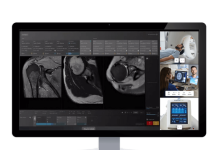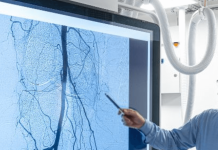The med tech company pitches this tool as a way to cut down on clinical trial attrition rates.
Med tech giant Royal Philips is rolling out a new at-home ECG system for decentralized clinical trial use. The company is pitching this new technology as a way for clinical trial participants to record ECG data without traveling to a clinical site or requiring an in-home clinician.
Trial participants wear a PCA 500 ECG body patch with a 12-lead ECG, which can securely transmit data in “near real time” through Philips’ cloud-based data collection and analysis service.
The European medical device company said that the system is now available in select markets in North America, Europe and Asia.
Philips noted that the move towards more home-based monitoring tools could improve clinical trial attrition rates.
Attrition rates have been a challenge for clinical trials historically. For example, a study published in Cancer found that the median attrition rate for supportive and palliative oncology clinical trials was 28% for the primary endpoint and 44% for the end of study.
“Our customers are seeking solutions that will help them to address key challenges that can stand in the way of extracting meaningful insights from their clinical trials,” Andy Broadway, general manager of ambulatory monitoring and diagnostics at Philips, said in a statement.
“Our growing portfolio of remote monitoring solutions help to curb patient attrition by reducing the amount of site visits required during the trial period, helping to improve both the quality of the outcome and the patient experience overall.”
The life science and research community are increasingly embracing decentralized clinical trials. In fact, 50 life science and healthcare organizations, including AstraZeneca, the FDA, and Pfizer are part of a new Decentralized Trials and Research Alliance (DTRA), which is focused on the adoption of patient-focused decentralized clinical trials and research.
A number of digital health companies are designing tools to enable decentralized trials. In September, digital wound-care company Swift Medical launched a new digital-imaging platform designed to support decentralized clinical trials. The technology was designed to aid in large-scale image collection and management in order for researchers to monitor the impact of medical interventions at various sites or at home.
Investors are pouring hundreds of millions of dollars into the space. For example, in October digital clinical trial platform Medable landed $304 million in Series D funding. Other large funding rounds in the space include Trial Spark’s $156 million Series C round, Florence’s $80 million Series C round and Lightship’s $40 million funding round.
Veteran decentralized clinical trial company Science 37 went public in May 2021 through a more than $1 billion SPAC merger with LifeSci Acquisition II Corp.




